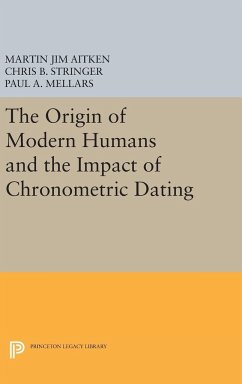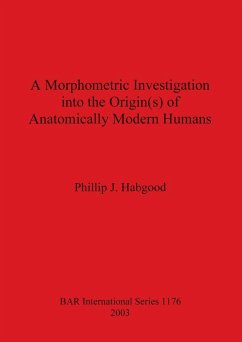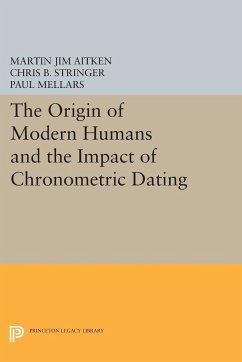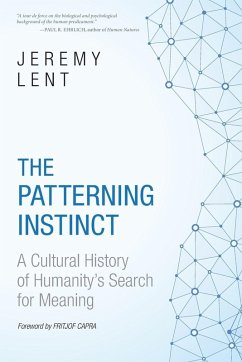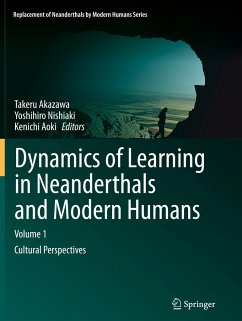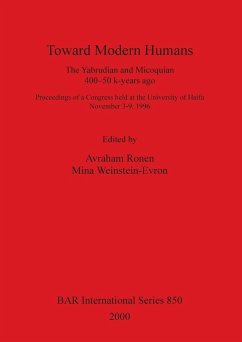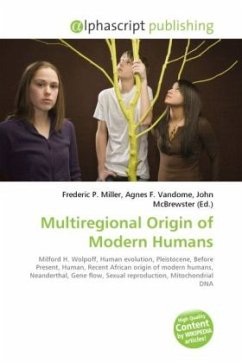
Multiregional Origin of Modern Humans
Versandkostenfrei!
Versandfertig in 6-10 Tagen
36,99 €
inkl. MwSt.

PAYBACK Punkte
18 °P sammeln!
The multiregional hypothesis is a model to account for the pattern of human evolution proposed by Milford H. Wolpoff in 1988. Multiregional origin holds that the evolution of humanity from the beginning of the Pleistocene 2.5 million years BP to the present day has been within a single, continuous human species, evolving worldwide to modern Homo sapiens. A competing theory, the recent African origin of modern humans (also known as "Out of Africa"), has emerged as the near consensus view since the 1990s, proposing that modern humans arose in Africa around 100-200,000 years ago, moving out of Af...
The multiregional hypothesis is a model to account for the pattern of human evolution proposed by Milford H. Wolpoff in 1988. Multiregional origin holds that the evolution of humanity from the beginning of the Pleistocene 2.5 million years BP to the present day has been within a single, continuous human species, evolving worldwide to modern Homo sapiens. A competing theory, the recent African origin of modern humans (also known as "Out of Africa"), has emerged as the near consensus view since the 1990s, proposing that modern humans arose in Africa around 100-200,000 years ago, moving out of Africa around 50-60,000 years ago to replace existing human species such as Homo erectus and the Neanderthals. Proponents of multiregional origin point to fossil and genomic data as support for their hypothesis. The gene flow and sexual reproduction between modern and ancestral human population has not been ruled out.




